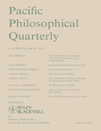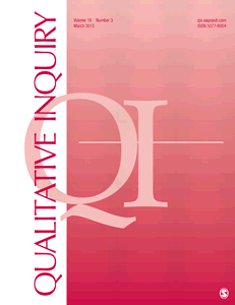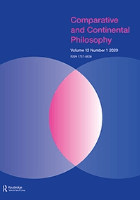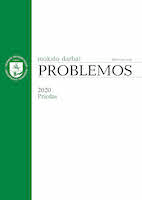
Journal of Critical Realism
Scope & Guideline
Championing Academic Excellence in Critical Realism
Introduction
Aims and Scopes
- Critical Realism as a Philosophical Foundation:
The journal explores critical realism as a foundational philosophy for understanding social science, emphasizing its role in addressing ontological and epistemological questions. - Interdisciplinary Research Applications:
A significant aim of the journal is to apply critical realism across various disciplines, including sociology, education, health, and political science, thereby promoting interdisciplinary dialogues. - Focus on Complexity and Emergence:
The journal consistently engages with concepts of complexity, emergence, and morphogenesis, examining how these ideas can inform social research and policy. - Reflexivity and Methodological Rigor:
Reflexivity in research design and implementation is a core focus, encouraging researchers to critically assess their methodologies and the implications of their findings. - Social Justice and Ethical Considerations:
The journal emphasizes the importance of social justice and ethical considerations in research, advocating for studies that address inequalities and promote societal well-being.
Trending and Emerging
- Intersectionality in Social Research:
There is a growing emphasis on intersectionality, particularly in studies examining the interplay of gender, age, and social factors, highlighting the need for nuanced analyses of social issues. - Reflexivity in Research Practices:
Reflexivity is increasingly recognized as essential in research methodologies, with scholars emphasizing the importance of researchers' positionality and the impact of their perspectives on findings. - Critical Realism and Climate Change:
Research linking critical realism to climate change and environmental issues is on the rise, reflecting a heightened awareness of the philosophical implications of ecological crises. - Digitalization and Urban Management:
The application of critical realism to digital technologies and urban management is emerging as a key area, showcasing the relevance of critical realist perspectives in contemporary societal challenges. - Health Inequalities and Social Justice:
There is an increasing focus on health inequalities and the role of critical realism in informing social justice initiatives, particularly in understanding the impacts of neoliberal policies on health outcomes.
Declining or Waning
- Traditional Quantitative Methods:
There appears to be a decreasing emphasis on traditional quantitative methodologies, as newer studies increasingly favor qualitative and mixed-method approaches that align more closely with critical realist principles. - Narrowly Defined Educational Practices:
The focus on narrowly defined educational practices has diminished, possibly due to a broader interest in interdisciplinary approaches that encompass a wider range of social phenomena. - Static Ontologies:
Discussions surrounding static ontological frameworks are becoming less prevalent, as researchers seek more dynamic and complex understandings of social reality that reflect contemporary challenges.
Similar Journals

Filosofija-Sociologija
Challenging Conventional Thought Through Scholarly InquiryFilosofija-Sociologija, a distinguished journal published by the Lithuanian Academy of Sciences, serves as a vital platform for scholarly discourse in the interdisciplinary fields of philosophy, sociology, and political science. With an ISSN of 0235-7186, this journal has solidified its reputation, ranked in the Q2 category for Philosophy and Q3 for Sociology and Political Science as of 2023, reflecting its growing influence within academia. Its Scopus rankings further substantiate its impact, especially in Arts and Humanities and Social Sciences. Covering an expansive scope from 2008 to 2024, Filosofija-Sociologija is dedicated to publishing innovative research that challenges conventional thought and fosters academic inquiry. Although currently operating without open access options, the journal remains an essential resource for researchers and professionals keen on exploring the dynamic intersections of philosophical thought and sociological analysis in the context of Lithuania and beyond.

PACIFIC PHILOSOPHICAL QUARTERLY
Illuminating the Path of Philosophical InquiryWelcome to the PACIFIC PHILOSOPHICAL QUARTERLY, a leading journal in the field of philosophy, published by Wiley. With an impressive impact factor and ranked in the top 15% of its category (Q1 in Philosophy), this esteemed journal has become a vital source for scholars and practitioners alike. Established in 1996, the journal presents groundbreaking articles that explore contemporary philosophical issues, ensuring its relevance through converged contributions up to 2024. With robust Scopus rankings, including a position of #122 out of 806 in the Arts and Humanities category, the quarterly serves as a platform for innovative ideas and rigorous debates in the philosophical community. Though it does not offer open access, its insights are invaluable for researchers, professionals, and students eager to deepen their understanding of philosophical discourse.

QUALITATIVE INQUIRY
Elevating Voices Through Rigorous Qualitative AnalysisQUALITATIVE INQUIRY is a leading academic journal published by SAGE Publications Inc, dedicated to advancing the field of qualitative research within the domains of Anthropology and Social Sciences. With an impressive Q1 ranking in both categories for 2023, the journal holds a prominent position in the academic community, recognized for its high-quality contributions and influential research. The journal, available in print with the ISSN 1077-8004 and electronically with the E-ISSN 1552-7565, showcases innovative methodologies and critical analyses that deepen our understanding of social phenomena. Researchers, professionals, and students will find a wealth of knowledge as the journal publishes insightful studies that push the boundaries of qualitative inquiry. Situated in the vibrant academic landscape of the United States and operating from its headquarters in Thousand Oaks, CA, QUALITATIVE INQUIRY plays a crucial role in shaping discussions and fostering new perspectives in the social sciences, underscoring its importance in the scholarly community.

ERKENNTNIS
Advancing the frontiers of philosophy and logic.ERKENNTNIS, published by SPRINGER, is a premier academic journal that has been advancing the study of philosophy and logic since its inception in 1919. With its esteemed ranking in the Q1 quartile for both categories as of 2023, it stands at the forefront of scholarly discourse, earning an impressive rank of #104 in the field of philosophy and #13 in logic according to the Scopus rankings. This influential publication not only contributes to the theoretical underpinnings of these disciplines but also fosters a vibrant exchange of ideas among researchers, professionals, and students alike. While it does not offer open access to its articles, the journal's esteemed reputation and rigorous peer-review process ensure that all published works maintain the highest standards of quality and intellectual inquiry, making ERKENNTNIS an essential resource for anyone engaged in these critical areas of study.

Comparative and Continental Philosophy
Connecting Continental and Comparative InsightsComparative and Continental Philosophy is a scholarly journal published by Routledge Journals, Taylor & Francis Ltd, based in the United Kingdom. With its ISSN number 1757-0638 and E-ISSN 1757-0646, this journal serves as a critical platform for exploring the intersections of various philosophical traditions, promoting dialogue between comparative and continental approaches. Despite its current Q4 ranking in philosophy (2023) and a Scopus ranking of #530 out of 806 in the Arts and Humanities category, it plays a vital role in advancing scholarly discourse and fostering innovative research in the field. Aiming to encourage diverse perspectives and interdisciplinary discussions, the journal attracts contributions from a global community of philosophers, researchers, and students dedicated to enriching philosophical inquiry. With a commitment to high-quality, peer-reviewed content, Comparative and Continental Philosophy supports the evolution of philosophical thought and practice in our increasingly interconnected world.

Rivista di Estetica
Cultivating Insights into Aesthetic ExperienceRivista di Estetica is a renowned academic journal published by ROSENBERG & SELLIER, dedicated to the exploration and discussion of aesthetic theory and practice. Since its establishment in 1966, the journal has been a significant platform for philosophers, artists, and scholars, contributing to the vibrant discourse within the field of Philosophy. With an impact factor that reflects its scholarly influence, Rivista di Estetica is categorized in the Q3 quartile of 2023, ranking 343 out of 806 in the Scopus database under Arts and Humanities: Philosophy. Recognizing the importance of accessibility in academia, the journal has been Open Access since 2014, allowing an expansive audience to engage with cutting-edge research and critical essays. Based in Turin, Italy, this journal invites researchers, professionals, and students alike to contribute to its pages, fostering a rich dialogue on artistic expression and aesthetic inquiry.

Cuestiones de Filosofia
Advancing philosophical discourse for a brighter tomorrow.Cuestiones de Filosofia is a prominent academic journal dedicated to advancing the field of philosophy through insightful research and critical discourse. Published by the UNIV PEDAGOGICA & TECNOLOGICA COLOMBIA, this journal has been an Open Access platform since 2013, promoting knowledge sharing and accessibility to philosophical scholarship. With its E-ISSN 2389-9441 and ISSN 0123-5095, the journal continues to contribute to the landscape of the Arts and Humanities, specifically within the philosophy category, where it holds an impressive rank of #531 out of 806 according to Scopus rankings, placing it in the 34th percentile. Aimed at researchers, academics, and students alike, Cuestiones de Filosofia fosters rigorous debate and exploration of philosophical concepts, enriching the scholarly community from its headquarters in Tunja, Boyacá, Colombia. As it converges from 2019 to 2024, the journal remains a pivotal resource for those seeking to engage deeply with contemporary philosophical inquiries.

Teoria-Rivista di Filosofia
Engaging Minds in Rigorous Philosophical AnalysisTeoria-Rivista di Filosofia is a distinguished academic journal published by EDIZIONI ETS, based in Pisa, Italy. With a focus on philosophical discourse, this journal is a valuable resource for researchers, professionals, and students in the field of philosophy. Having achieved a commendable Q3 ranking in the 2023 category quartiles, Teoria stands out in the competitive landscape of philosophy journals, with a Scopus rank of #612 out of 806, placing it in the 24th percentile. Although currently classified as a non-open access publication, it frequently addresses cutting-edge themes and challenges within philosophical research, promoting rigorous analysis and diverse perspectives. The journal spans various topics across multiple issues from its inception in 2011 to its ongoing publications scheduled through 2024, making it a relevant venue for contemporary philosophical inquiry. The journal aims to foster scholarly communication and stimulate critical debates, contributing significantly to the global philosophical landscape.

Problemos
Championing Open Access to Transformative KnowledgeProblemos is an esteemed academic journal published by VILNIUS UNIV PRESS, dedicated to advancing research in the field of Philosophy. With an ISSN of 1392-1126 and E-ISSN 2424-6158, this open-access journal has been disseminating knowledge and fostering scholarly dialogue since 2005. Situated in Lithuania, Problemos has gained recognition, achieving a prestigious Q2 category ranking in the 2023 Philosophy category and a Scopus rank of #458 out of 806, placing it in the 43rd percentile. The journal covers a broad spectrum of philosophical inquiries, making it an essential resource for researchers, professionals, and students seeking to engage with contemporary philosophical discourse. By offering unrestricted access to its content, Problemos promotes the free exchange of ideas and encourages collaboration across disciplines, establishing itself as a pivotal platform within the academic community.

Filozofia Nauki
Exploring the Intersection of Thought and ScienceFilozofia Nauki is a distinguished academic journal published by the Institute of Philosophy at Warsaw University, Poland, with a dedicated focus on the interdisciplinary realms of Philosophy and the History and Philosophy of Science. Since its transition to Open Access in 2020, the journal has broadened its reach, allowing scholars worldwide to engage with its content without barriers. The journal boasts an important standing in the academic community, currently ranked Q2 in Philosophy and Q3 in History and Philosophy of Science as of 2023, reflecting its impact and relevance. With an H-Index indicating its citation influence, the journal aims to foster critical discourse, sharing innovative research and ideas that push the boundaries of knowledge in these fields. Its Scopus rankings, with a percentile of 58th in Philosophy and 41st in the History and Philosophy of Science, further highlight its growing prestige. As it continues to publish cutting-edge research, Filozofia Nauki stands as a vital resource for researchers, professionals, and students committed to exploring the philosophical dimensions of scientific inquiry, ensuring a robust forum for discussion and discovery.